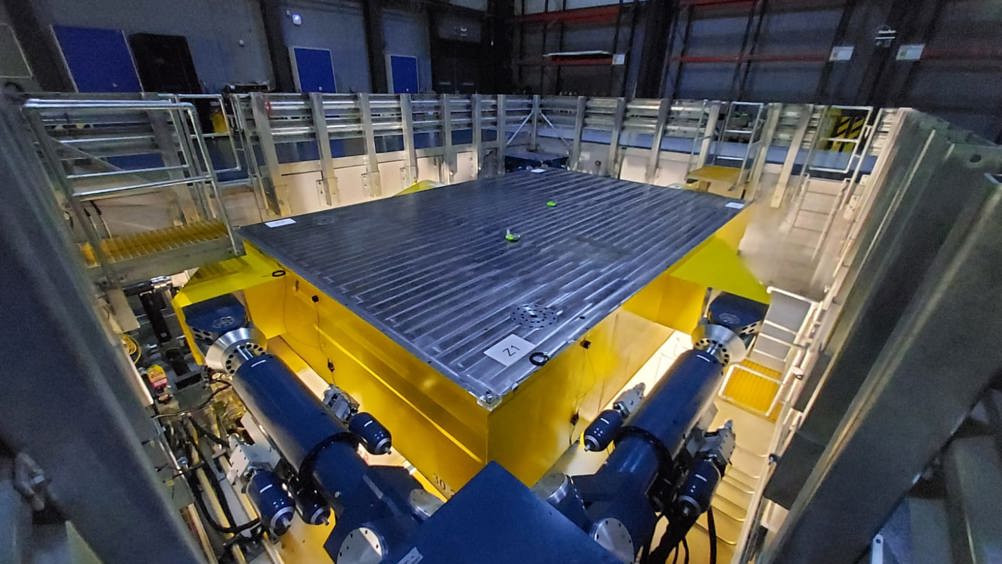New SoFSI facility ready for infrastructure shake up
A new UK facility called SoFSI, featuring deep soil pits and shaking tables, is set to help reduce both the financial and environmental cost of vital infrastructure.

The Soil-Foundation-Structure Interaction (SoFSI) laboratory, based at the University of Bristol’s Langford Campus to the south of the city, is claimed to be the first of its kind in the world. Backed by £12m in funding from EPSRC, SoFSI will allow researchers to explore how infrastructure such as bridges, windfarms and rail projects like HS2 interact with the ground when subjected to dynamic loads.
Equipment at the facility includes a 6m x 5m x 4m soil pit, a 50-ton capacity biaxial shaking table for dynamic testing of structures, as well as a smaller, high-performance, six-axis shaking table. It will be run by the UK Collaboratorium for Research on Infrastructure and Cities (UKCRIC), an academic consortium made up of 13 of the UK’s leading universities, including Bristol. Initial research at SoFSI will focus on five key areas: nuclear power plant soil-structure interaction, high speed rail, offshore wind turbines, monopiles and pile groups, and integral bridges.
Register now to continue reading
Thanks for visiting The Engineer. You’ve now reached your monthly limit of news stories. Register for free to unlock unlimited access to all of our news coverage, as well as premium content including opinion, in-depth features and special reports.
Benefits of registering
-
In-depth insights and coverage of key emerging trends
-
Unrestricted access to special reports throughout the year
-
Daily technology news delivered straight to your inbox










Water Sector Talent Exodus Could Cripple The Sector
'Capricious changes of priority by the general public'?!? Surely the public would demand both sufficient water supply and sufficient waste...